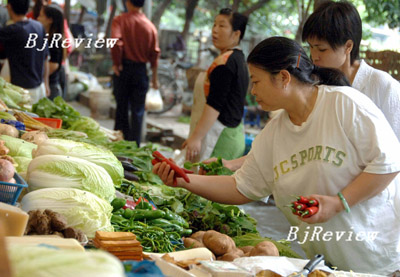
Smaller Government Role, Bigger Rewards
In recent years, when dealing with PR crises in China caused by substandard products, transnational companies like Nestle, Coca Cola and Carrefour all chose to avoid the direct victims, ignoring consumers’ legitimate rights, but rather turning to government agencies to solve the problems.
Why do these companies favor such a tactic? On one hand, most multinationals believe that Chinese businesses and consumers are not mature and independent enough to have face-to-face negotiations. On the other hand, the Chinese Government still has too much influence on public issues. As a result, local businesses and consumers are deprived of the right to face up to the corporate titans and fight for their interests.
Only when the government, local businesses and consumers begin to see themselves as part of the same process, can we expect change. On the part of local companies, they must focus on updating their products; and ordinary consumers should pay more attention to product quality, shaking off the blind faith in foreign brands. This will force big transnational companies to stop ignoring the direct victims. The government needs to strengthen market regulation and leave local businesses and consumers free hand to handle business disputes.
The Beijing News
Bring Wages in Line With Prices
Statistics from the National Bureau of Statistics show, in the first quarter of this year, China’s consumer price index jumped 2.7 percent over the same period last year. In March and April, its growth rate reached 3.3 percent and 3 percent, respectively.
Since last October, most Chinese cities have seen the rise of grain and edible oil prices and the continual hikes are even adversely affecting the living quality of some middle-income families.
Against this background, the Ministry of Labor and Social Security recently announced that the state would take measures to raise common employees’ wages. After nearly three decades’ economic development, China is now in a position to do this.
The problem is, when consumer prices keep soaring, to what extent can the so-called wage raise proposed by the government help to offset the price rises and when will the raise be made?
There must be an overall planning of the process and the speed of the wage increase must keep pace with the growth rates of the national gross domestic product and state revenues. In addition, tax breaks and sweetened social security benefits are of vital importance to ease the pressure from higher living costs.
Guangzhou Daily
Level the Provident Fund Playing Field
According to Shanghai Housing Provident Fund Center, such industries as banking, telecommunications, IT, power, and gas and water production and supply rank far ahead of other industries in terms of the total amount of money deposited into personal accounts.
State policy says companies must contribute money into a personal housing provident fund account in proportion to the individual’s salary. As a result, the housing provident fund system is making the rich richer while doing little to help the poor.
Apart from the subsidy gap, there are no rigid regulations to ensure that the system is thoroughly implemented. In some cases, enterprises never contribute a cent into their employees’ accounts but face no penalty.
Given the problems, it’s time for reform. The money that is now contributed by employers should be returned to government, who should then distribute this in a more equitable manner to society at large. Fund management must be made more transparent and individual privacy should not be invaded.
Oriental Morning Post Compassion and Respect Must Be Heartfelt
Under the slogan of “revitalizing traditional culture,” in some places across China, children have been encouraged to help senior family members with a footbath and foot massage, in the process kneeling to show respect. Yet while some parents may feel their children’s services come from the heart, in most cases these actions are of no tangible significance.
Take a footbath for example. The reason why so many people consider it as a typical way of showing filial piety can be attributed to the psyche of traditional Chinese culture. To give others a footbath, you have to first bend down, and as a result, those who are served will feel superior. But simply lowering one’s own status is not the way to show respect for others. This is an incorrect understanding of filial piety. To encourage the young to act in a filial way, they should be motivated to develop true love and respect for the elderly and show they genuinely care about the life and health of the seniors around them. In this way, respect for traditional culture and customs will cause young people to develop themselves.
At a time when counter-tradition is stressed more than ever before, the younger generation sometimes shows complete indifference and apathy to the elderly. Some of them pay little attention to the living quality of seniors, and most of the young mistake filial piety as giving money. Against this background, to demand children to wash their parents’ feet will hardly help to develop the essence of filial piety. The only way to improve the situation is to make ongoing efforts to cultivate the virtue of respecting the elderly and Chinese traditions. An occasional footbath is certainly not the way to produce these results.
Nanfang Daily | 